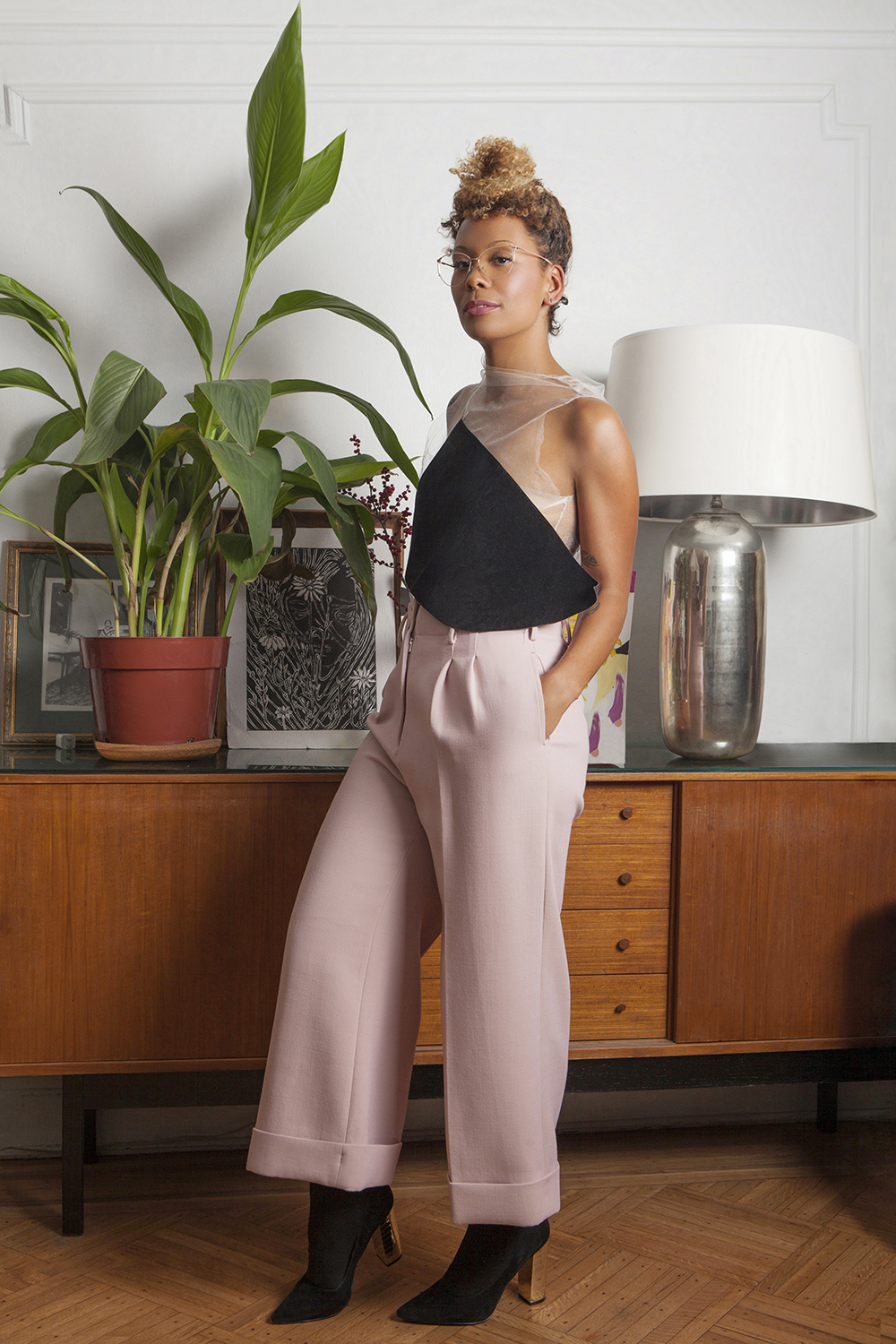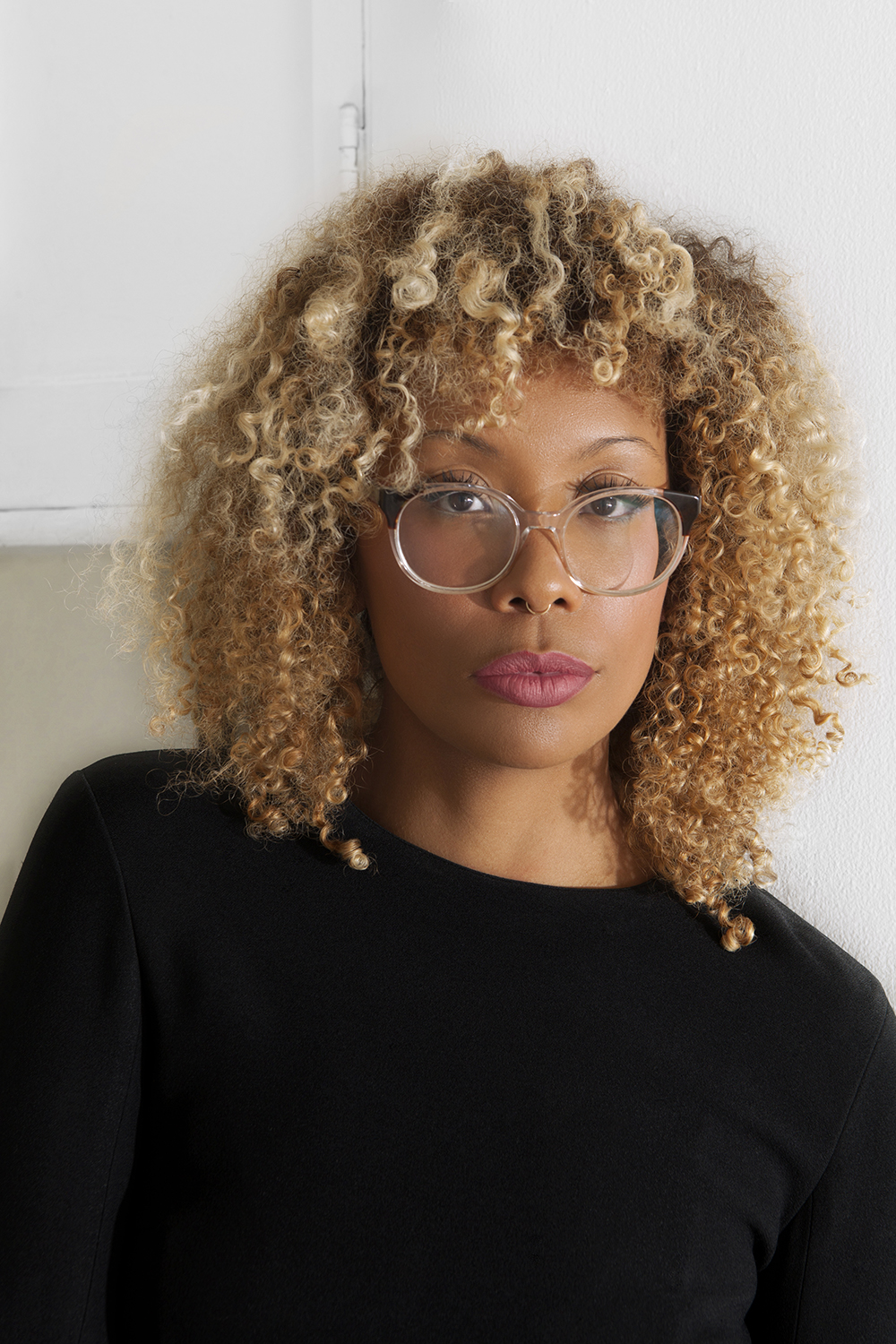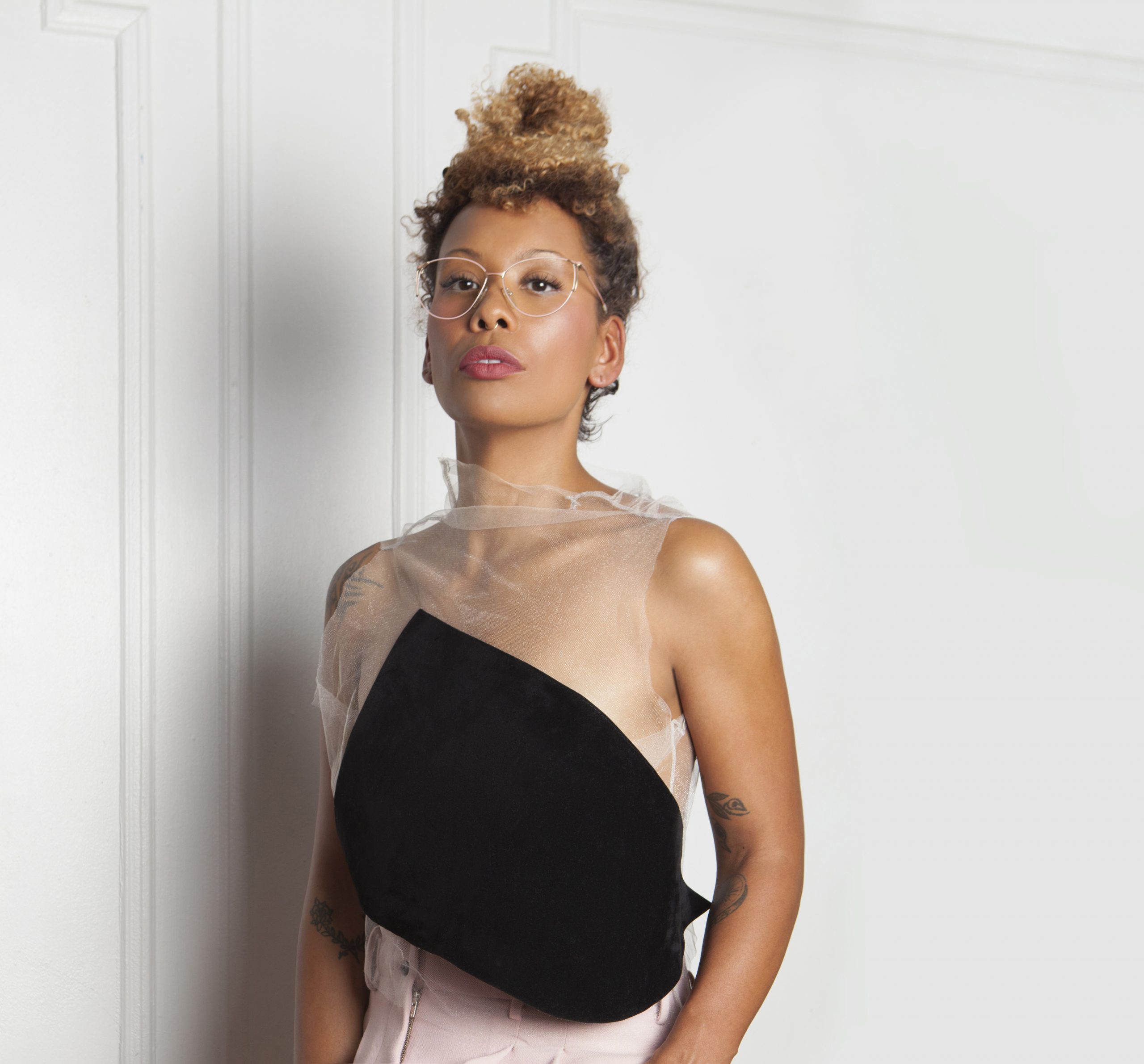Jenna Wortham on Technology, Self-Care, and Black Futures
Jenna Wortham is a technology reporter and staff writer for The New York Times Magazine and a co-host of the podcast Still Processing. Wortham is an integral part of a push in contemporary media to reinvent the way in which we think about technology. Her work addresses the intersections between new media, pop culture, health, and race.

Born and raised in Alexandria, Virginia, with a degree in Anthropology from the University of Virginia, Wortham’s path to journalism was a slightly unconventional one. At UVA, Wortham was confronted with the harsh realities of the conservatism embroiled in a state sandwiched between the North and the South. After spending a semester in London during her undergrad years, Wortham became increasingly interested in grassroots media. In 2005, Wortham moved to San Francisco, where she dug her heels into a tight-knit community of journalists and newly developing media platforms during the inaugural years of mobile technology. Wortham waitressed all over town and interned at Wired.com, where she wrote for “Culture Beat,” forming her journalistic footprint. From there, she was plucked by an editor at The New York Times. In 200,8 she became a business and technology reporter for the newspaper, which eventually transitioned into a position as a staff writer for The New York Times Magazine with her own column titled “On Technology.”
Yelena Keller: Your piece “Black Health Matters” brought attention to Black health and well-being after the police killings of Philando Castille and Alton Sterling. You noticed the physical and psychological toll that these incidents had on yourself as well as the community. In this piece, you offer a few ways of coping which exist outside the realm of social media. Why was it important to you to offer physically healing solutions to collective trauma?
Jenna Wortham: As a reporter and a writer, I want to cover things that feel important to me, and intimate. I aim to be curious about the world, the one that exists beyond the grasp and scope of what I experience on a daily basis, but also the one that is wholly centered in what I live and experience, too. I was sick, made sick from the experience of experiencing trauma and beginning to fear the world in a way that I hadn’t before, especially after the arrest and death of Sandra Bland, which still remains an unsolved and violent mystery. I felt an unending and relentless anxiety from living and re-living the Black death going viral online, and knew I wasn’t alone. At that moment, it felt imperative to let other people know they weren’t alone, and that a place like The New York Times saw them, and recognized their hurt. Legitimized it, in a way, and extended a hand that said, “this is okay to talk about, and get help for.” Any doubts I had about writing about myself on an intimate and personal and deeply vulnerable level were immediately erased by the response, which was tremendous.
Technology is evolving at a rapid pace. Movies and TV shows like Black Mirror, the British contemporary Twilight Zone, create a particularly cynical view of where we are, and where we are headed. Do you have a more positive outlook on the future in regard to technology?
Technology is a tool, like anything else that pushes us simultaneously toward progress and away from it. It encourages us to ask the question “what is progress?,” which was the root of a Tino Sehgal piece a few years back at the Guggenheim that demanded engagement as part of the performance. Technology is just the application of knowledge, it has so many forms. It demands our engagement and inquisition, and it is much vaster than a single social application. It is understanding the political motivation of data leaks, the marketing of the next big user interface as voice, the way policemen track likes on Facebook. It is impossible to know what the outcome will be, if we’ll look back on this era as having a positive or negative hand in shaping the future. I suspect it will have both, as any dynamic and disruptive force does. I’m an eternal optimist, and yet find myself struggling to find even a pewter lining these days. But I remain ever vigilant about the power and importance of Internet culture in serving as our most important form of political and social commentary, for promoting the most inventive creators and highlighting Black creativity. I honestly don’t know if I’d still be upright without Black Twitter.

The Black community has long shared a collective experience, however, with the advent of social media, including Black Twitter, it might be argued that what was once confined to a community has become open-sourced information. Hashtags such as #BlackLivesMatter, #BlackGirlMagic, and #BlackJoy have created unfiltered access to the Black experience. What effect do you think this increase in information has had on others’ perceptions of Black identity?
This is an interesting question! I am very deep in thought about the Internet gaze, and the non-Black gaze on the Black experience as seen through the Internet. It’s definitely true that hashtag campaigns have offered access to black culture, and amplified the urgency of imperative civil rights issues like BLM and Blackness, which is undeniably important. But we should be clear about something—not everyone who is Black has access to the Internet, nor is the Black community and experience a unanimous or homogenous one, not even close, particularly in the United States but especially in the global diaspora. I would also be careful in assuming that a hashtag or online trends give “unfiltered access” to anything: Black people, like any subjugated group, excel at sousveillance and adaptive techniques to avoid being easily tracked, surveilled and categorized by observers and outsiders, and we still see that happening now, so the entirety of the Black experience that lives online is ever-changing, mutating, evolving and very decentralized, so that question is impossible to answer definitively.
That’s very true. What was your experience growing up in Virginia? What impact has technology had on your own perceptions of self?
The Internet has always been a portal for me, to the limitations and possibilities of humanity and the ways of being. My self is still being shaped, and certainly, the Internet plays a role in that—it is always possible to learn more, read more, educate myself more online, which leads to growth. Virginia offered me a few pathways for a future and a career, but the Internet offered infinite pathways. A lot of my early life experiences—writing, making art, listening to music, community, even romantic relationships—came via chat rooms and the Internet, and I will be forever grateful for that.
You’re working on a new project with Kim Drew. can you tell us a little more about that? Are there any other projects that you’re looking forward to?
Kim and I are trying to pick up the baton where iconic relics like The Black Book, edited by Toni Morrison, and Fire!!, an African-American literary magazine published during the Harlem Renaissance, left off—we are trying to create a vibrant, living artifact that pays tribute to the foremost cultural producers making work during this moment in time. The project is ambitious, and not yet formally announced, and we hope it will be a gorgeous visual physical book that can be held and cherished and shared online and passed down to generations. I am also working on a podcast with the shining bright light that is Wesley Morris, called Still Processing, and exploring herbalism and the holistic connections I have to myself and the earth through a newsletter called Fermentation and Formation and it is just a pet project but it brings me so much joy. Pet projects are so important because making space to experiment is key to exploring new futures. I’m also very interested in learning new skills this year, everything from video editing to bead-working, silk dyeing, bookbinding, and pilates, as well as reading a ton, consuming as many books and documentaries and art exhibits as I can to enrich the palette of gestures, multimedia materials, ideas and theories that I have to work with. 2017 for me is all about going deep and wide, learning and expanding, exploring and pushing for the space to exist in all the ways that make sense to me this year.

When asked what was the most shade she’d ever thrown in her life, Juliana Huxtable famously responded, “existing in the world.” What is one of your proudest or shadiest moments, in press or otherwise?
Honestly, Juliana is the queen and she did it for all of us. I reblogged, retweeted, and reposted that moment a million times over because she said it best, and I wouldn’t even dream of trying to top her perfection.
What would you consider the top five cultural moments of 2016?
I listed them in my podcast, Still Processing, (plug!), but to give a hint—they include the death of Vine, Beyoncé at the Country Music Awards, and the Mannequin Challenge.
You’re a writer by profession with an extremely influential platform and an avid social media user with a sizeable following and readership. This accreditation and attention warrants a sort of power. How do you make decisions about what you put into the world and what you do not? How do you moderate content?
If it’s power, it’s still a soft power. I am not naive about the power of social media to amplify voices that previously didn’t have an outlet, or to create new professions and fields of expertise that didn’t exist before. I am in awe of them. But I also am clear about my role in all this—which is to be a writer, to write, and to report, and I try to spend much of my time focused on that and not thinking about repackaging myself as a brand, which is a luxury, since I already have a salaried job. All that said, I do love social media and just try to use my tiny corner of it (because it is still relatively small, and the owners of those services are constantly tweaking with them to re-prioritize who and what we see, which is largely still a mystery to me) to have fun and show people that even though I am a journalist for the largest newspaper in the world, I can do that and still have a septum ring, and stan for Solange and get stick-and-pokes. Truthfully, I am an extremely private person, so what I broadcast is still extremely filtered based on what feels comfortable for me to expose on my terms—but I often push myself to show people that I am a regular person, because I think it’s important to demystify institutions and privileged spaces, and be honest about who gets to walk in those hallowed halls. I want people to know they can have access to anything they want, including anything I have, or appear to have.
Yelena Keller is a New York-based contributing writer for Topical Cream from Oakland, California.